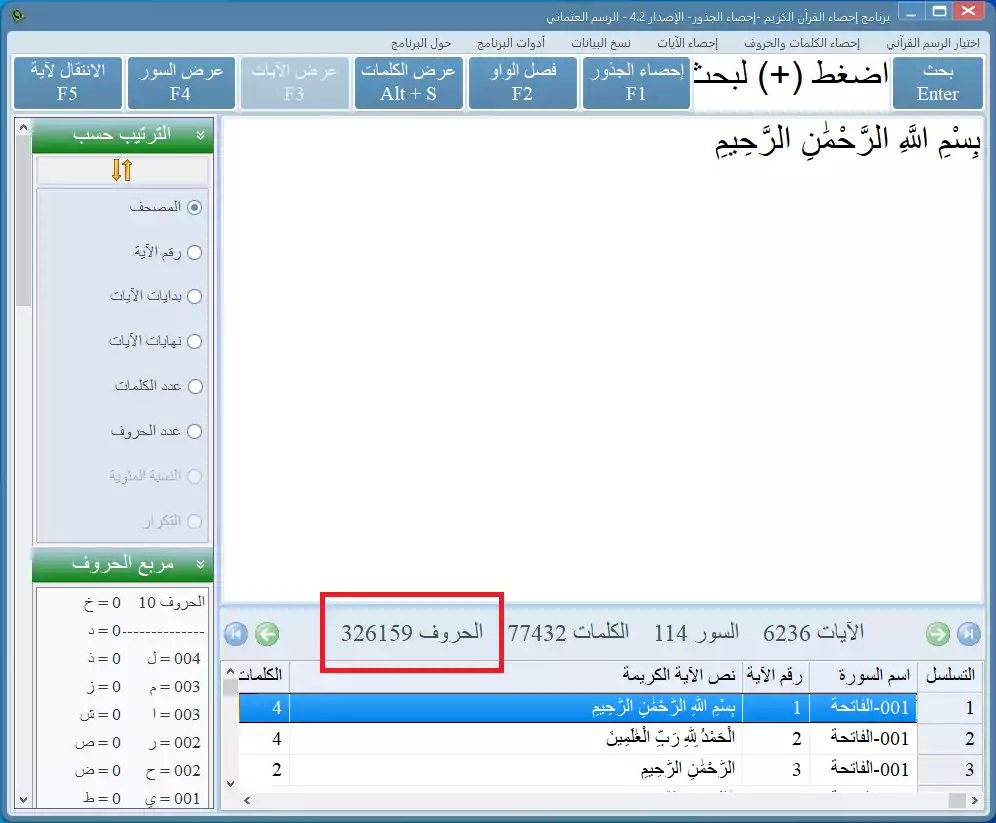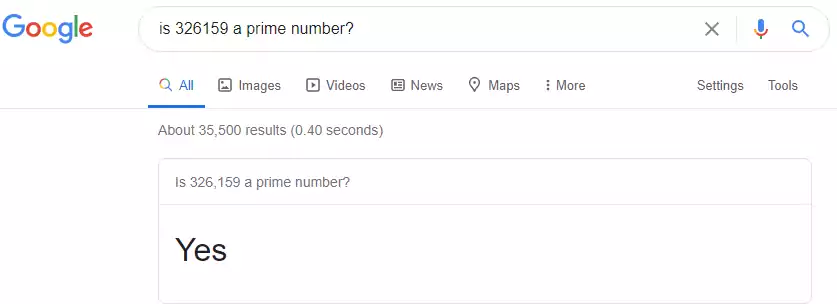Prime numbers are indivisible. The word "Allah" appears 2699 times in the Quran; 2699 is a prime which means it is indivisible just like Allah is indivisible. Skeptics claim that this is just a coincidence. It turned-out that prime numbers are one of the characteristics of the entire Quran.
Primes are 2, 3, 5, 7... However this was portrayed in the Quran 1400 years before it was discovered. In chapter 1 the verse count, word count and letter count are all primes.
- Verse count is 7 (prime number).
- Word count is 29 (prime number).
- Letter count is 139 (prime number).
All characteristics of this chapter are primes.
Another verse in the Quran describes this chapter and says that it is "Mathany مَثَانِي".
It says that number 7 belongs to a group called "Mathany مَثَانِي". This same word is also found in another verse which says that the entire Quran also belongs to this same group "Mathany مَثَانِي".
This verse says that the entire Quran belongs to the group "Mathany مَثَانِي". This word is derived from pair or do again. There is no do again in mathematics however there is multiply again. You can form any natural number by simply multiplying primes (8 = 2 x 2 x 2). But those numbers that you are multiplying again with are definitely primes (2 is a prime).
This verse says that the entire Quran belongs to the group "Mathany مَثَانِي" and from the previous verse it says that number 7 belongs to this same group "Mathany مَثَانِي". In mathematics 7 belongs to the group of prime numbers, so we are checking whether the number of letters of the entire Quran is also a prime or not.
From Quran Characters Counter:

The Quran is made of 326159 letters.
Checking if this number is a prime:

Yes 326159 is a prime number. This says that the Quran is indivisible; if a single letter was added or removed from anywhere in the entire Quran this will no longer be a prime. This also proves that the Quran was preserved.
No Code Website Builder